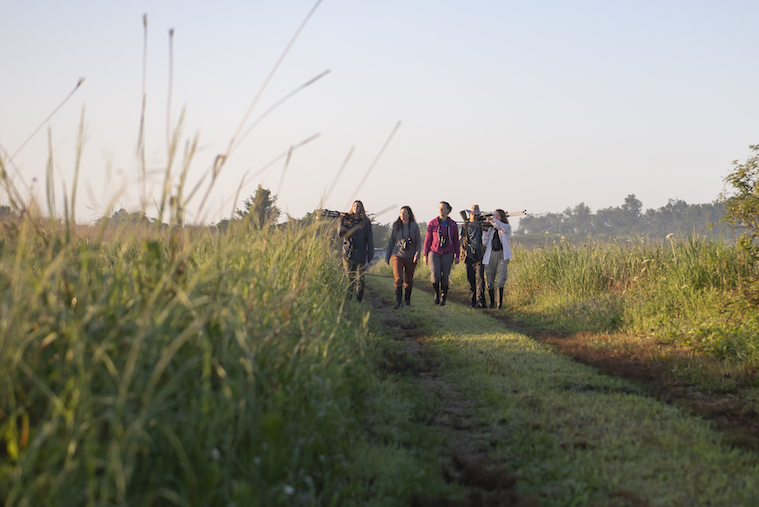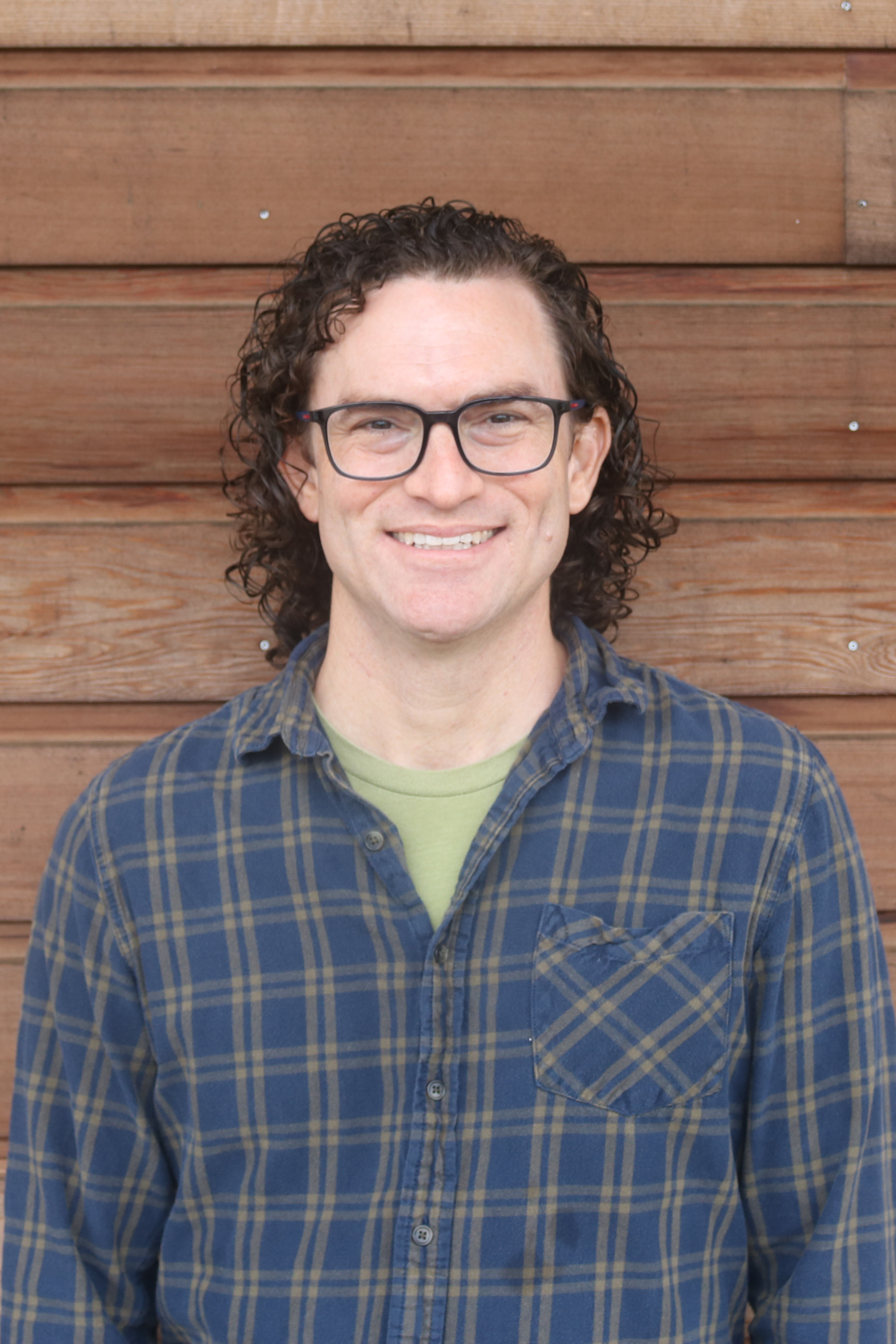Making an Impact in Sustainable Food Systems
Over the past few months, the new Director of Sustainable Food Systems at CES has been expanding programs and research on this critical issue.

 Since his appointment last fall, Luke Drake, the new director of sustainable food systems at the Washington College Center for Environment and Society (CES), has been rapidly expanding the regenerative agriculture work happening at the College.
Drake brings over two decades of extensive experience in the field of food systems,
and his deep understanding and passion for these areas will be invaluable as he leads
the center's initiatives in this vital domain.
Since his appointment last fall, Luke Drake, the new director of sustainable food systems at the Washington College Center for Environment and Society (CES), has been rapidly expanding the regenerative agriculture work happening at the College.
Drake brings over two decades of extensive experience in the field of food systems,
and his deep understanding and passion for these areas will be invaluable as he leads
the center's initiatives in this vital domain.
Forged at California State University, Northridge, where he served as associate professor of geography & environmental studies, Drake's expertise encompasses a wide range of critical areas within sustainable food systems, including agrobiodiversity, disaster resilience, sustainable gardening, farmers' markets, community gardens, and urban greening. His work will directly contribute to the ongoing efforts of the Kent County Food Council, which plays a crucial role in assessing and addressing the evolving food needs and opportunities within the local community. Furthermore, he will be instrumental in the development of a demonstration garden at the Semans-Griswold Environmental Hall, providing a living laboratory for students and the wider community.
"The chance to direct the Sustainable Food Systems program at the Center for Environment and Society, nestled within the rich agricultural context of Kent County, is a fantastic opportunity,” said Drake. “After many years dedicated to exploring the complexities of food systems, I am eager to bring my experience to Washington College. The Center for Environment and Society's commitment to hands-on learning and community engagement, particularly through initiatives like gardening and farming activities at the Waterfront and River and Field Campuses, aligns perfectly with my vision for cultivating more sustainable and resilient foodscapes."
Valerie Imbruce, Lammot du Pont Copeland Director of CES, said of recent additions to the center's growing team, "Everything we do is focused on preparing our students to address the most critical environmental challenges."
That focus is coming to fruition under Drake's guidance in this new role, as the center actively develops research and experiential learning opportunities at its expansive 17-acre farm located at the River and Field Campus. His leadership will be key in shaping these initiatives, offering students unique hands-on experiences in sustainable agriculture and food production.
Drake holds a Ph.D. in geography from the University of California, Los Angeles, and a B.A. in environmental studies from the University of California, Santa Cruz. His scholarly work and dedication to community engagement make him an ideal fit for the mission and values of Washington College and the Center for Environment and Society.
The Washington College River and Field Campus encompasses nearly 5,000 acres of diverse ecological communities just minutes from its main campus in Chestertown, including 2.5 miles of Chester River shoreline, a 90-acre freshwater lake, multiple streams and seasonal wetlands, 1,200 acres of forest, 3,000 acres of agricultural fields, and 228 acres of restored native prairie with natural grasses that have allowed northern bobwhite quail to flourish. The property also features 50 acres of managed, successional habitat for one of the most active bird-banding stations on the East Coast, handling approximately 14,000 birds a year.
To learn more about the many opportunities CES affords students to solve the most pressing issues facing the future of our planet and its people through experiential learning, community and civic engagement, and research, head to their webpage.
- Dominique Ellis Falcon